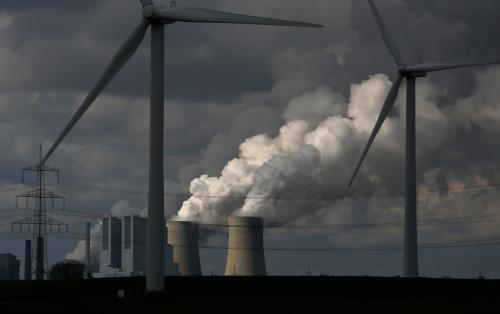

2:00 pm EDT - 3:30 pm EDT
Past Event
2:00 pm - 3:30 pm EDT
1775 Massachusetts Ave., N.W.
Washington, DC
20036
As the United Nations Conference on Climate Change in Paris approaches, countries around the world are looking for ways to lower carbon emissions. Germany and Japan are both undertaking dramatic transitions in their electricity sectors, moving away from nuclear energy and deploying more renewable power. Germany has set an ambitious goal of 80 to 95 percent reduction in greenhouse gas emissions and a 60 percent market share for renewables by 2050. In Japan, renewable electricity generation is expected to increase and the future role of nuclear energy is uncertain. Many questions still remain about the progress these countries have made and what lessons can be learned by other nations contemplating their future energy mix.
On October 27, the Energy Security and Climate Initiative (ESCI) at Brookings hosted a discussion on renewable energy transitions in Germany and Japan as a follow-up to a policy brief released on this issue last September. Agora Energiewende Director Patrick Graichen and Yu Nagatomi, a researcher with the Power Market Study Group at the Institute of Energy Economics in Japan, provided initial remarks. ESCI Nonresident Senior Fellow John P. Banks joined in the discussion, and ESCI Senior Fellow Charles K. Ebinger moderated.
Related Content

John P. Banks, Charles K. Ebinger, Alisa Schackmann
September 19, 2014
2:00 pm - 3:30 pm
As countries around the world look ahead to this year’s Conference on Climate Change in Paris, Germany and Japan are both undertaking dramatic transitions in their electricity sectors, moving away from nuclear energy and deploying more renewable power. On October 27, the Energy Security and Climate Initiative hosted a discussion on what lessons can be learned from energy transitions in these countries.



Nasrin Siddiqa, Atenea Rosado-Viurques
April 23, 2024

Carlos Martín, Carolyn Kousky, Karina French, Manann Donoghoe
April 23, 2024

Elaine Kamarck, Darrell M. West
August 27, 2024